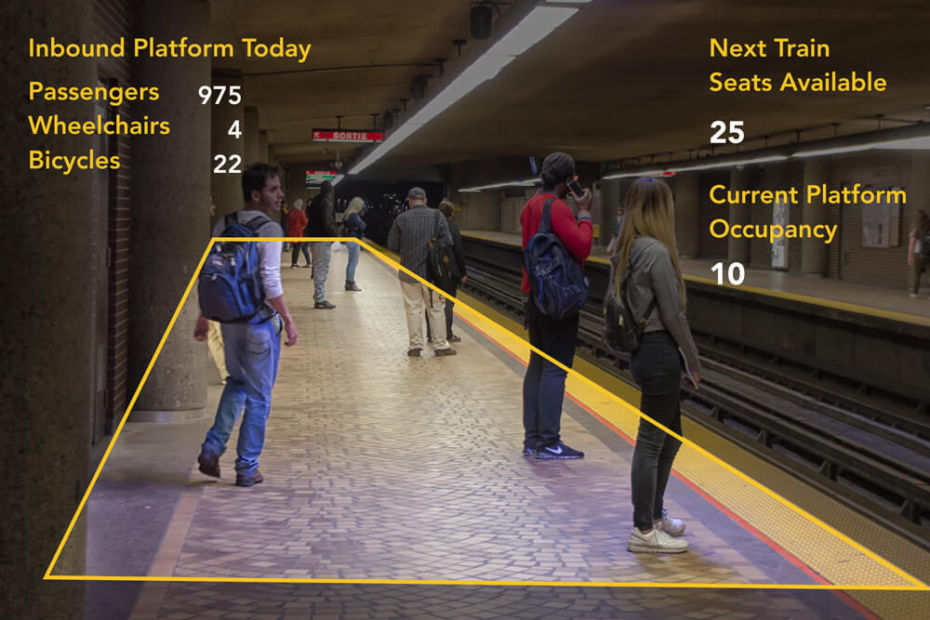Transit Tech Labs announces recovery challenge finalists
- June 6, 2022
- Steve Rogerson

Transit Tech Lab has announced the ten finalists for its Covid-19 Recovery & Environmental Sustainability challenge, a global competition calling for technologies to improve public transit safety and meet clean energy objectives.
Selected from nearly 150 applicants, the ten finalists will use emerging technologies such as artificial intelligence, machine learning, computer vision and lidar to improve the public transportation experience for millions of people in New York’s tri-state area.
The companies chosen will test their technology over an eight-week period with the Metropolitan Transportation Authority (MTA), Port Authority of New York & New Jersey, and NJ Transit.
The first Covid-19 Response Challenge was launched by the MTA and Transit Innovation Partnership in 2020 and led to eight productive collaborations with the MTA, the Port Authority and NJ Transit. The call for applications for this year’s challenge launched in January 2022, with the goal of ensuring customers and employees feel safe, reducing greenhouse gas emissions and making transit more responsive to the needs of New Yorkers.
The 2022 finalists are:
- Blyncsy (Salt Lake City, Utah): Catalogues roadway infrastructure and conditions, including pavement markings, obstacles and roadway deterioration to facilitate maintenance.
- Clarifai (New York): Uses machine learning and computer vision software to identify track intrusions, unsafe behaviour in stations and passenger flows.
- Invision AI (Toronto, Canada): Uses existing cameras and AI vision systems to create real-time 3D digital twin of transit stations.
- Quanergy (Sunnyvale, California): Uses lidar hardware paired with analytic software to provide a digital twin of any space. The digital twin can report unsafe behaviour, as well as providing object detection and passenger flows.
- Zensors (San Fransisco, California): Uses artificial intelligence to capture actionable data from existing hardware and cameras to provide operations visibility and address problems that range from overcrowding to fare evasion.
- Gridmatrix (San Francisco, California): Uses software to interpret video footage on roads, enabling agencies to understand traffic patterns, unsafe intersections and emissions.
- Microgrid Labs (Boulder, Colorado): Enables planning for a fast, smooth and cost-effective transition to electric fleets through SaaS-based modelling, simulation and optimisation software.
- Runwise (New York): Uses wireless technology and web-based software to operate heating and water systems more efficiently and help cut utility costs.
- StormSensor (Seattle, Washington): Provides cost-effective stormwater, climate data and analytics to prevent flooding, simplify monitoring, and streamline maintenance and response.
- Mobility House (Belmont, California): Enables intelligent integration of electric vehicles with the grid while reducing charging costs.
“Public transit is the backbone of the tri-state economy, and its efficacy, safety and resilience are of paramount importance,” said Natalia Quintero, senior vice president of the Partnership for New York City. “The Transit Tech Lab is committed to providing cutting edge tools to restore riders’ confidence and support a sustainable future. Previous winners have deployed tools that improve service and the customer experience. We look forward to seeing the results of this year’s programme.”
Michael Wojnar, senior advisor for innovation and policy at the MTA, added: “Partnering with the Transit Tech Lab finalists gives the MTA the opportunity to evaluate innovative approaches to MTA’s top priorities and challenges as laid out by the chair earlier this year. Limiting track intrusion, increasing safety in stations, building more resilient infrastructure, and improving the efficiency of electric vehicle charging will be important issues for the MTA in 2022 and for years to come. We are excited to see what these firms have to offer, and we thank the Transit Tech Lab for introducing them to us.”
And Robert Galvin, chief technology officer at the Port Authority of New York & New Jersey, said: “We are thrilled to once again be partnering with Transit Tech Lab to test out innovative and sustainable technology across our facilities. As the first transportation agency to embrace the 2018 Paris Climate agreement and the first to commit to net zero emissions by 2050, we are eager to work with these finalists to pilot new technologies that will not only enhance travel for our customers, but will help to modernise our infrastructure processes and contribute to our overall environmental goals.”
Finally, Lookman Fazal, chief of information and digital technology at NJ Transit, said: “NJ Transit is proud of our continued partnership with the Transit Tech Lab and we are excited to work with these finalist teams to harness innovations and cutting-edge technologies from the private sector. We are always looking to leverage the newest technologies to improve safety, service and the customer experience.”
The Tech Lab programme is part of the Transit Innovation Partnership, which yielded the award-winning MTA Live Subway Map and was established by the MTA and the Partnership for New York City to bring private sector innovation to improve public transit.
Since 2018, the programme has put the New York metropolitan region at the forefront of transit innovation, which promises to support the modernisation of public transit and to transform the customer experience.
Winners of previous competitions include Remix, a collaborative digital platform used to redesign the bus routes, and Axon Vibe, which built the Essential Connector smartphone app to help essential workers plan journeys during overnight subway disinfection closures.





